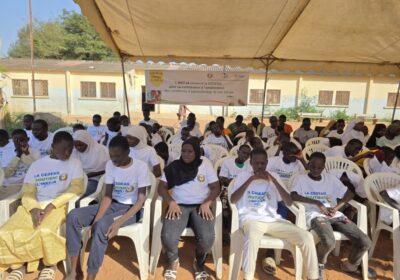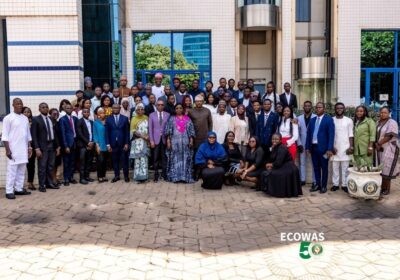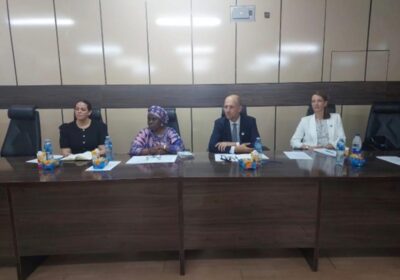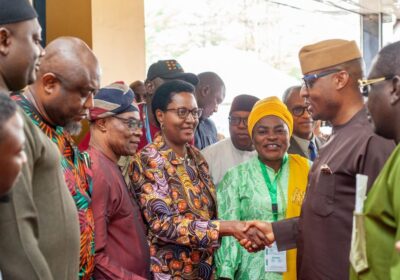ECOWAS Commission and Institutional Response Mechanism to Regional Economic Cooperation and Development.
By Raymond Enoch
In recent times, a growing sentiment has emerged questioning the relevance of global institutions such as the United Nations (UN) and urging countries to focus on their internal dynamics, building their own institutions, and protecting their sovereignty. Critics argue that international law is not a ground norm, pointing out that nations repeatedly convene at the United Nations General Assembly (UNGA) yet often fail to address the real issues affecting their citizens. Despite these criticisms, the UN has continued to function as an essential platform where countries reaffirm their commitment to international cooperation through specialized agencies and institutions that hold events year after year. African nations are no exception. The participate in various global institutions meetings and conferences, which include the African Union (AU) and aimed at fostering continental solidarity and unity.
Similarly, the Economic Community of West African States (ECOWAS) has faced its own share of criticism. Established in 1975 with the goal of regional integration and cooperation among West African countries. ECOWAS has been accused by military juntas in countries such as Mali, Niger, and Burkina Faso of serving foreign interests instead of focusing on the welfare of the people. These governments claim that ECOWAS threatens their sovereignty, arguing that they hold the responsibility to protect their citizens and safeguard their future. But is this a genuine factors as claimed by those countries, or is it a manifestation of power struggles and military regimes challenging regional norms? One might wonder if the current trend of military takeovers in West Africa could set a dangerous precedent for the future of governance in the region.
ECOWAS, since its reform in 2010, has undergone a significant transformation. Originally an organization primarily concerned with government-to-government relations, it has now become an institution focused on the people of West Africa. This shift in focus has led to the design of numerous programs and initiatives that directly impact the daily lives of citizens across member states. The growing influence of ECOWAS in areas such as trade liberalization, security, and the free movement of people has made it a critical actor in the region’s development. This is particularly significant given that ECOWAS, like any international body, relies heavily on the contributions of member states, as well as partnerships with global organizations such as the United Nations.
The question then arises: why are countries like Mali, Niger, and Burkina Faso accusing ECOWAS of being influenced by foreign powers? These claims seem to overlook the fact that ECOWAS is primarily funded by its member states and collaborates with international institutions with operational bases within West Africa. The assertion that ECOWAS is being used as a tool for foreign powers to impose their will on these countries is both misleading and a diversion from the real issues at play. The reality is that ECOWAS operates on the principles of regional integration and cooperation, principles that are vital to the development and welfare of West African citizens.
The strides made by ECOWAS in facilitating trade liberalization and the free movement of people within the region have been remarkable. These initiatives have played a key role in fostering economic growth and creating opportunities for millions of West Africans. However, the actions of military governments in Mali, Niger, and Burkina Faso are now jeopardizing these hard-won gains. The risk of losing the freedoms of movement and trade that have been integral to the region’s development is a dire consequence that must be avoided at all costs. The future of West Africa’s integration hinges on the swift re-engagement of these countries with ECOWAS, ensuring that the Commission continues to serve the interests of the people, not political elites or military juntas.
For the sake of the future of the region, it is crucial that Mali, Niger, and Burkina Faso rejoin ECOWAS as soon as possible. Regional integration and cooperation are essential to tackling the challenges that West Africa faces, from economic instability to security threats. The continuity of ECOWAS’s work is paramount to fostering economic development, promoting the welfare of citizens, and ensuring that the region remains united in its quest for a prosperous future.
Raymond Enoch is a journalist and regional affairs expert with a focus on African economic and political development. With experience in reporting on West African regional integration, his work critically examines the intersection of governance, security, and socio-economic progress in the continent. He is a passionate advocate for the role of international organizations in promoting sustainable development, and his insightful analyses are often sought after by academic institutions and policy think tanks. Raymond’s writing reflects a deep understanding of the complexities of African geopolitics, regional cooperation, and economic development.









